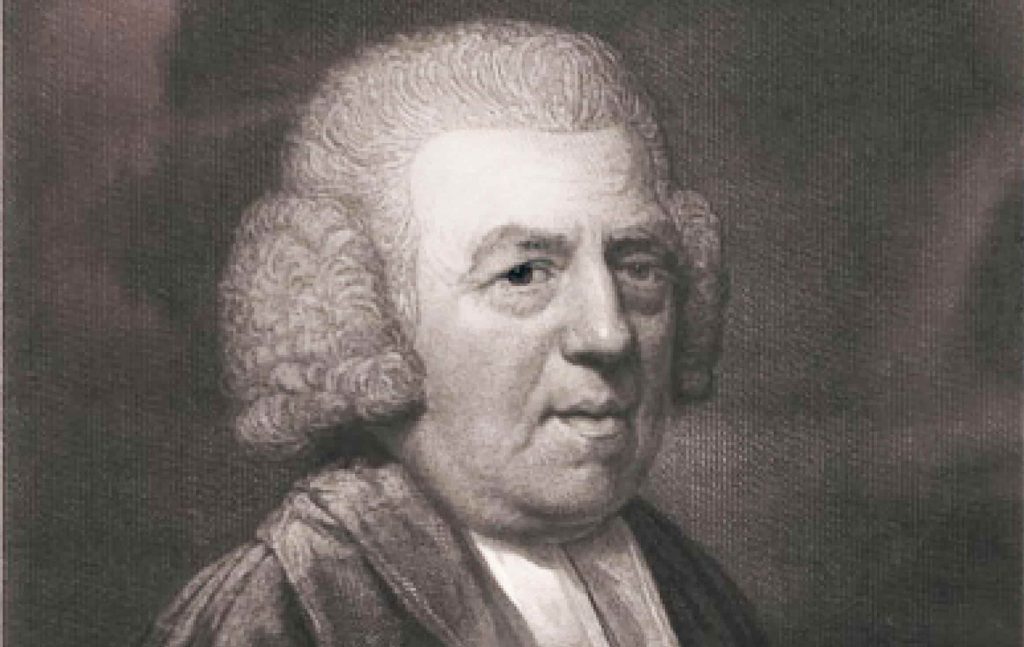John Newton was born on July 24, 1725, in Wapping, London, England. He was an Englishman.
Newton’s mother, a devout Christian, introduced him to the Bible and taught him hymns during his early years. She died when he was seven years old. After her death, Newton’s religious education waned. At age 11, he began sailing with his father, a shipmaster, embarking on a life at sea.
In 1748, while aboard the ship Greyhound, Newton experienced a severe storm off the coast of Ireland. Fearing for his life, he prayed for God’s mercy, marking the beginning of his spiritual transformation. This event did not immediately end his involvement in the slave trade, but it initiated a gradual shift in his beliefs.
Before fully embracing Christianity, Newton worked in the transatlantic slave trade. He captained several slave ships between 1750 and 1754. A severe stroke in 1754 ended his seafaring career.
During his recovery, he studied theology and reflected on his past actions. In 1757, he applied for ordination in the Church of England. By 1764, he was ordained and appointed curate of Olney, Buckinghamshire.
As curate of Olney, Newton collaborated with poet William Cowper. Together, they composed hymns to complement their sermons. This partnership led to the publication of the “Olney Hymns” in 1779. This collection includes some of Newton’s most famous works.
Newton’s near-death experience during the storm in 1748 was a pivotal moment in his spiritual journey. His subsequent stroke in 1754 further prompted him to reconsider his life’s direction. These events led him to abandon the slave trade and pursue a path in ministry.
Later in life, he became an advocate for the abolition of slavery. In 1788, he published “Thoughts Upon the African Slave Trade,” detailing the inhumanity of the practice and expressing regret for his involvement.
Newton composed numerous hymns that have endured over time. Some of his most well-known works include:
- Amazing Grace (1772)
- Glorious Things of Thee Are Spoken (1779)
- How Sweet the Name of Jesus Sounds (1779)
- Be Still, My Heart! These Anxious Cares (date unspecified)
- Begone, Unbelief, My Saviour Is Near (date unspecified)
- Come, My Soul, Thy Suit Prepare (1779)
- Approach, My Soul, the Mercy Seat (1779)
Newton continued his ministry until his death on December 21, 1807, in London. He was married to Mary Catlett, his childhood sweetheart, on February 12, 1750. They remained together until her death in 1790.
Newton’s transformation from a slave trader to a prominent Christian minister and abolitionist exemplifies the themes of redemption and grace.
Even after his death in 1807, Newton’s hymns continued to inspire. His words have been sung in churches, revivals, and even secular events. The message of Amazing Grace—God’s unmerited favor—resonates with people from all walks of life.
John Newton’s hymns still touch hearts today because they speak of real transformation, deep faith, and God’s incredible grace. His words, inspired by Scripture and personal experience, continue to lead people to worship and reflect on God’s love.

Sources:
1. Britannica
2. Christian History Institute
3. Wikipedia
More Christian composers
- William Batchelder Bradbury: A Hymn Writer for Generations
- Fanny Crosby: The Blind Hymn Writer Who Shaped Gospel Music
- Isaac Watts: The Hymn Writer Who Transformed Christian Worship
- John Newton: The Man Behind Amazing Grace
